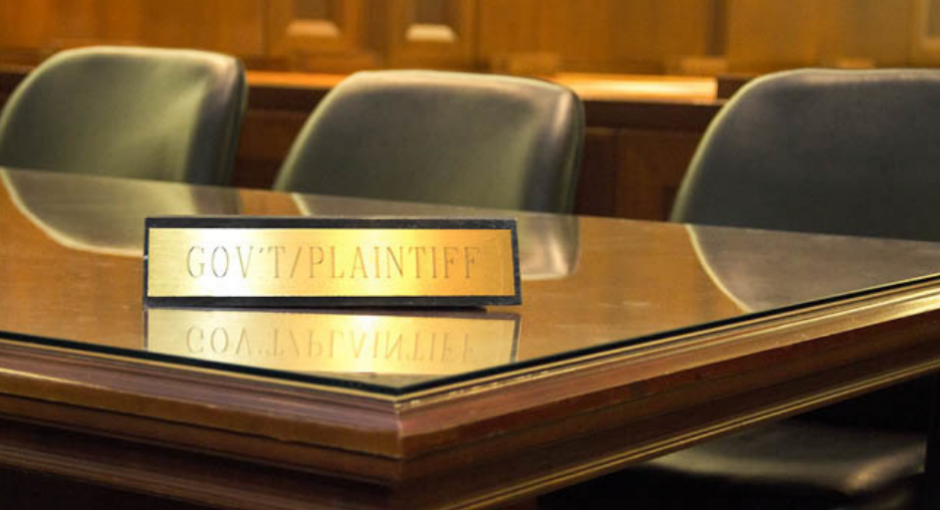A federal appeals court in Chicago has told a lower court in Indianapolis to issue a final judgement in drug manufacturer Lilly’s 340B contract pharmacy lawsuit to clear the way for the case’s next phase.
An appeals court in Philadelphia meanwhile has given the federal government extra time to file its opening brief in Sanofi and Novo Nordisk’s contract pharmacy lawsuits, which are being heard in tandem. Pharmaceutical Research and Manufacturers of America (PhRMA), drug company AstraZeneca, and drug industry vendor Kalderos all recently filed friend of the court briefs in the case supporting Sanofi and Novo Nordisk’s positions.
And in Washington, D.C., a federal appeals court has consolidated Novartis and United Therapeutics’ contract pharmacy lawsuits for arguments. The cases also were heard and decided as a pair at the district court level.
Lilly’s Lawsuit
Lilly and the federal government both are appealing U.S. Senior Judge Sarah Evans Barker of the Southern District of Indianapolis’ October 2021 mixed decision in the company’s lawsuit.
Barker backed Lilly’s claim that the government’s letter telling Lilly that its contract pharmacy actions were illegal was arbitrary and capricious. She also ruled, however, that the government’s finding that Lilly had broken the law “neither exceeds the agency’s statutory authority nor is contrary to law.” Barker said “the fairest and most reasonable interpretation of the 340B statute” would not let manufacturers unilaterally restrict drug distribution in ways that frustrate 340B’s purpose.
The judge sent the matter back to the U.S. Health Resources and Services Administration (HRSA) for further proceedings consistent with her decision.
Lilly appealed the decision in November 2021. Within days, the U.S. Seventh Circuit Court of Appeals signaled that because Barker had not issued a final judgement and entered final orders in the case, the case might not be ripe for review. (The government filed its appeal in December.) In January, the Seventh Circuit Court suspended the filing of briefs “pending further court order.” Last week, a three-judge panel (Judges Frank Easterbrook, Michael Brennan, and Thomas Kirsch II) issued that order.
The judges sent the case back to Barker “to enter a judgment that fully and completely implements its decision, declaring specifically and separately the respective rights of the parties.”
“Once the district court has done so, this appeal will proceed to briefing,” the judges said.
They further ordered Lilly and the government to notify them by April 21, nine days from today, “whether the district court has entered its amended judgment”—a strong sign that they expect Barker to act by then.
Sanofi and Novo Nordisk’s Lawsuits
The U.S. Third Circuit Court of Appeals on March 28 granted the federal government’s uncontested motion for a 30-day extension of time to file its brief challenging part of a lower court’s November 2021 ruling in Sanofi and Novo Nordisk’s 340B contract pharmacy lawsuits.
U.S. Chief Judge Freda Wolfson of the District of New Jersey upheld the government’s finding that Sanofi and Novo Nordisk cannot unilaterally impose restrictions on offers of 340B pricing to covered entities and that their policies must cease. But she also vacated the government’s findings that the companies owe credits or refunds to covered entities and face civil monetary penalties “to the extent that such determinations may depend on the number of permissible contract pharmacy arrangements under the 340B statute.”
The government’s brief originally was due last week Friday, April 8. The Third Circuit Court extended its deadline to May 9. Sanofi and Novo Nordisk filed their opening briefs last month.
Meanwhile, PhRMA, AstraZeneca, and Kalderos filed amicus briefs in the case on March 15.
PhRMA argues that the 340B program today bears little resemblance to Congress’ design. “The explosion of contract pharmacy arrangements under the 340B program has been accompanied by (and contributed to) a shift in the beneficiaries of the program’s discounts—from patients to large commercial pharmacies, third-party administrators (some of which are affiliated with a large commercial pharmacy), and certain types of hospitals,” it says.
AstraZeneca—which won its 340B contract pharmacy federal lawsuit against the government in February—observed in its brief that the judge in its case ruled twice that the 340B statute contains no obligation “to make 340B-discounted drugs available to contract pharmacies.”
That silence means that federal health agencies “have no authority to sanction manufacturers for failing to deliver 340B-discounted drugs to unlimited contract pharmacies,” it said.
Kalderos—whose 340B contract pharmacy lawsuit against the federal government has been stayed pending the resolution of Novartis and United Therapeutics’ appeals of their contract pharmacy suits—told the Third Circuit Court in its brief that requiring 340B covered entities to provide manufacturers with basic claims data to prevent duplicate discounts and diversion “is entirely consistent with the 340B statute’s text and purpose.” The government’s declaration that manufacturers may not impose any conditions on 340B sales is arbitrary and capricious, it said.
Novartis and United Therapeutics’ Lawsuits
The U.S. Court of Appeals for the District of Columbia last month, as expected, consolidated Novartis and United Therapeutics’ separate appeals of a federal district judge’s joint ruling in November in both of their 340B contract pharmacy lawsuits. The federal government also has appealed U.S. District Judge Dabney Friedrich of the District of Columbia’s decision.
Friedrich ruled that the 340B statute does not prohibit drug makers from attaching any conditions to 340B sales. But, she said, the statute does not permit all such conditions. Any new enforcement action against Novartis and UT would need to be based “on a new statutory provision, a new legislative rule, or a well-developed legal theory that Section 340B precludes the specific conditions at issue here,” Friedrich said.
The court also on March 31 revised the schedule for filing of briefs in the case. The government’s opening brief is due May 9. Novartis and United Therapeutics’ briefs are due June 8. The government’s reply to the drug companies’ briefs is due June 27.


